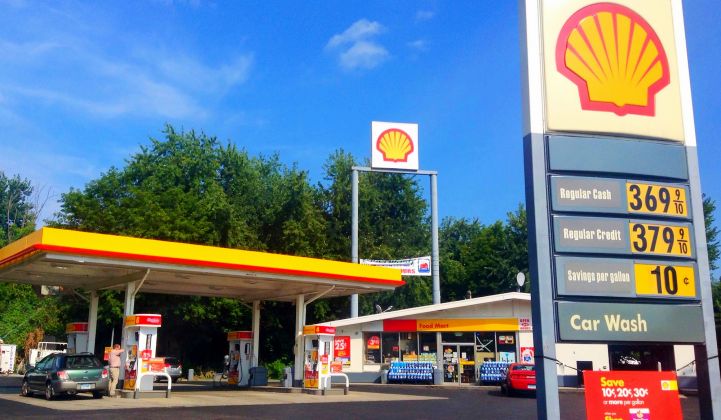As the uptake of electric vehicles accelerates, oil and gas majors have continued to grapple with how much to invest in a technology that could put them out of business. On Friday, Royal Dutch Shell made arguably the most striking vote of confidence in electric cars from a major yet: buying electric charging company NewMotion.
Gaining ownership of a company that manages 30,000 residential and business charging stations, and offers access to 50,000 more, is both a natural progression and a big step for oil and gas companies in the electric market.
The investment aligns with majors’ evolving strategies to keep up in an all-electric future that may not have a place for the products they’ve made trillions selling. Right above where NewMotion’s website proclaims it is a wholly owned subsidiary of Shell, the site claims the company was founded with “a mission to contribute to a cleaner world by eradicating fossil fuels” -- the fuels otherwise known as Shell’s bread and butter.
They may not be for long, though. “We recognize that one of the themes of the energy transition is going to be electrification,” said Shell’s vice president for new fuels, Matthew Tipper, when announcing the purchase.
Shell currently invests about $200 million in renewables annually, but it plans to increase that to $1 billion by 2020. The company also has plans to introduce fast-charging points and install charging stations at retail locations in Norway, Britain, the Philippines and the Netherlands. All of those countries but the Philippines proposed bans on fossil fuel cars this year, which will go into effect in the coming decades. According to Shell’s own projections, a quarter of the globe’s cars will be electric by 2040.
“Today’s announcement is an early step toward ensuring customers can access a range of refueling choices over the coming decades, as new technologies evolve to co-exist with traditional transport fuels,” Tipper said.
While Shell’s purchase is significant, it’s not the first of its kind from a major. Total recently purchased natural gas and electric charging company PitPoint. Both Shell and Total have joined up on a global hydrogen council investing $10.7 billion in the next five years on hydrogen product development. Recently, ExxonMobil and BP both revised their electric vehicle forecasts upward. Both now expect 100 million electric vehicles on the road, BP by 2035 and ExxonMobil by 2040. In May, Total’s chief energy economist projected that electric vehicles will account for between 15 and 30 percent of new vehicle sales by 2030.
And electric-vehicle investments are just one slice of the market oil and gas majors are eyeing. Though total investment in renewable sources from oil and gas companies remains small, the tide is shifting. As director of corporate research at Wood Mackenzie, Valentina Kretzschmar, told Greentech Media earlier this month: “The problem for them has been the uncertainty around the pace of growth in renewables and electric vehicles.”
Compared to the $25 billion Shell spends on new projects in a year, the purchase of NewMotion is a relatively minimal expenditure. But the investment does hint that the problem of uncertainty may be turning into a moot point.



